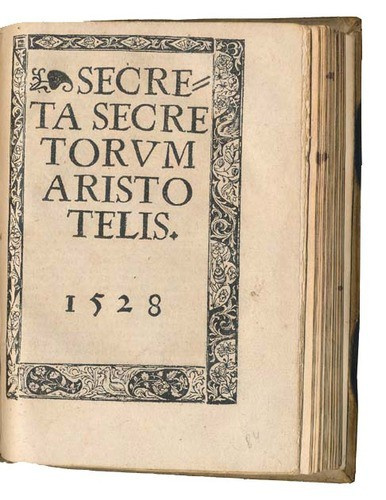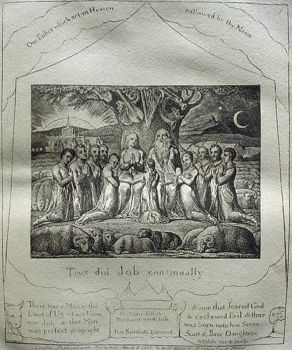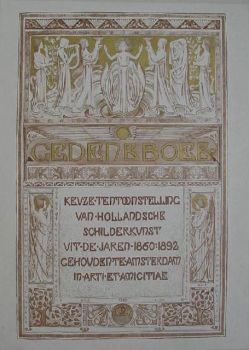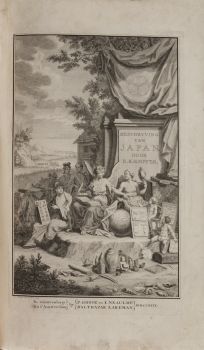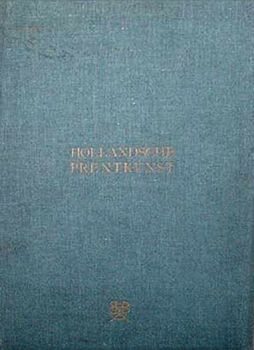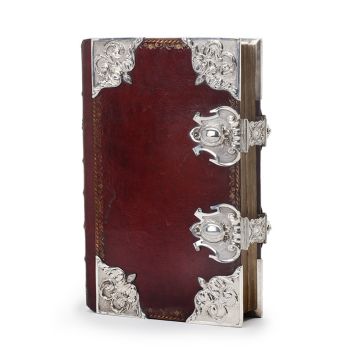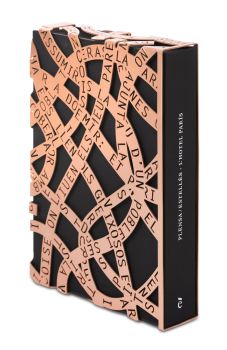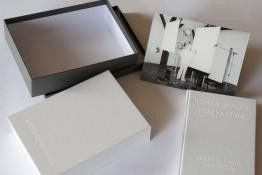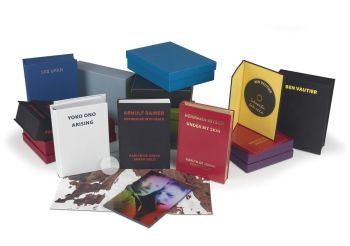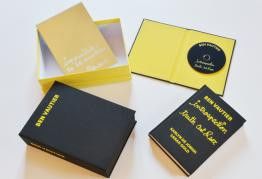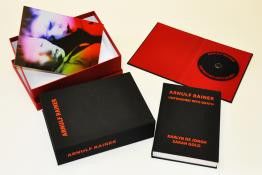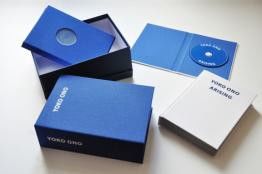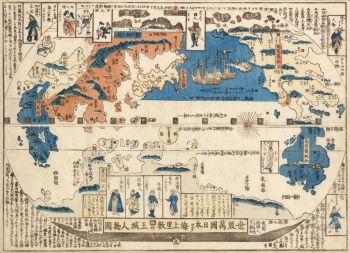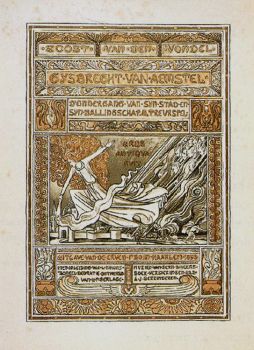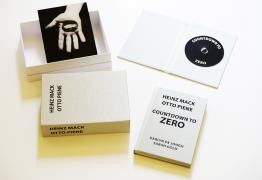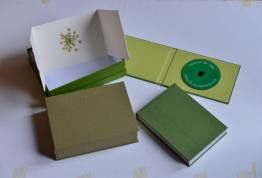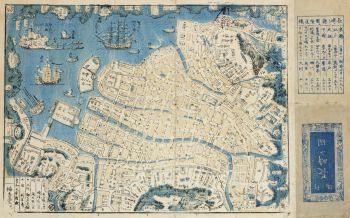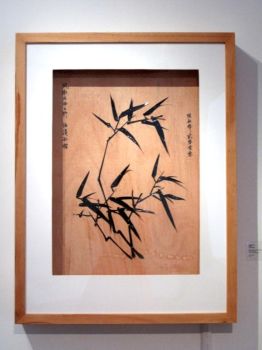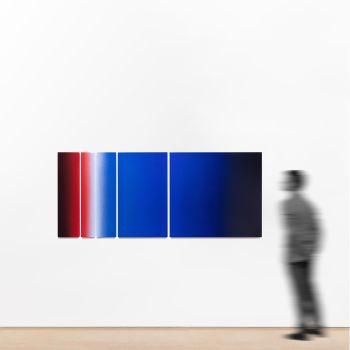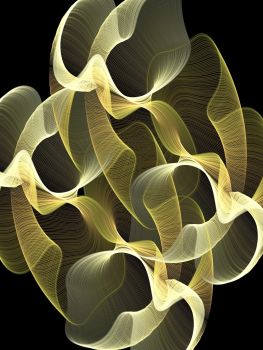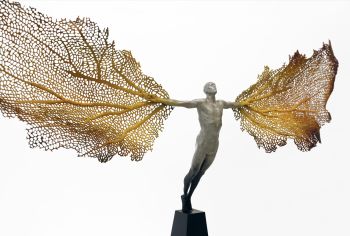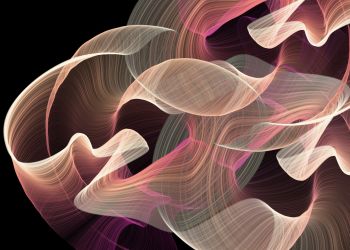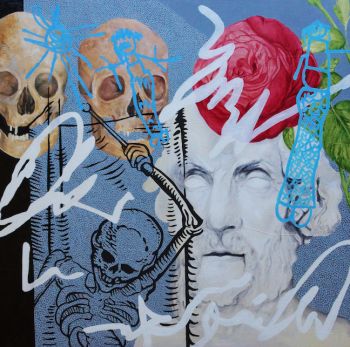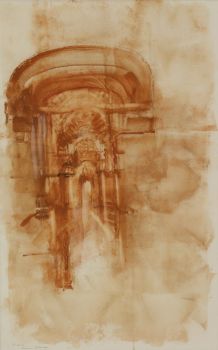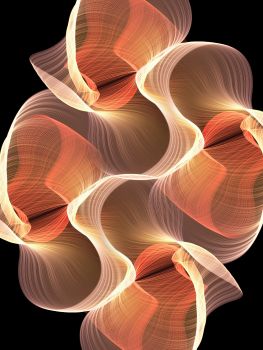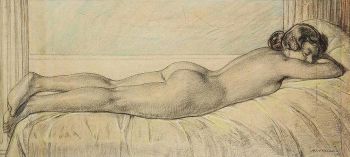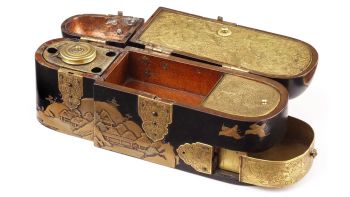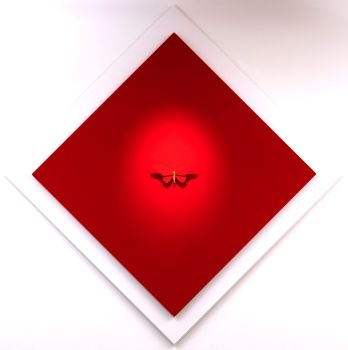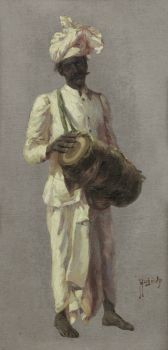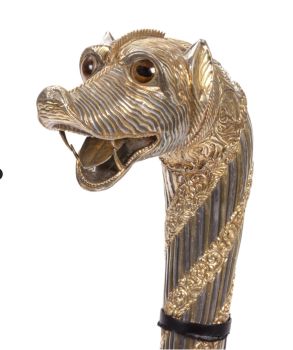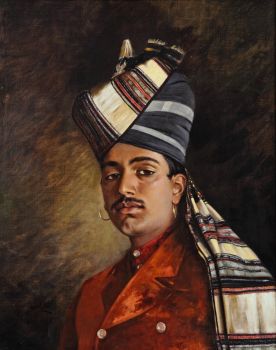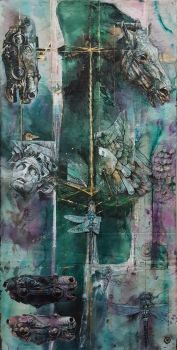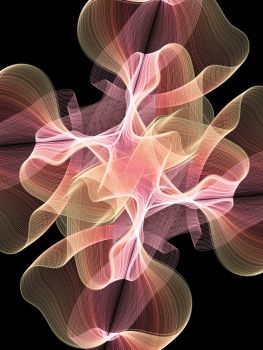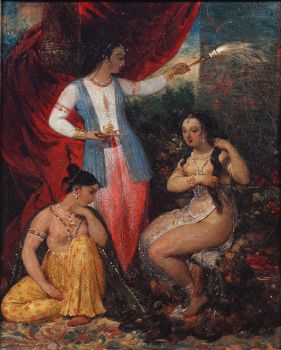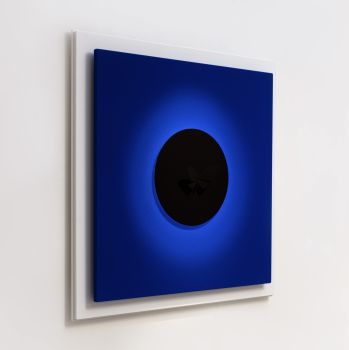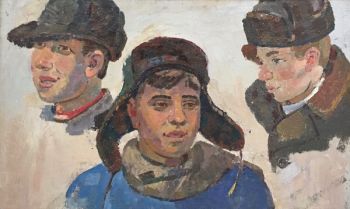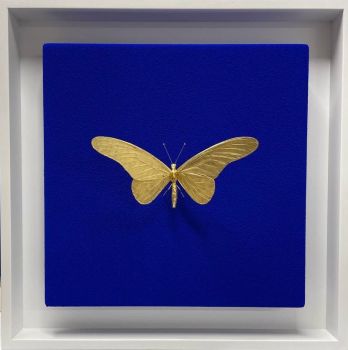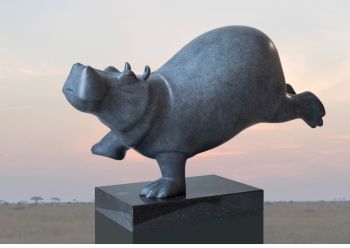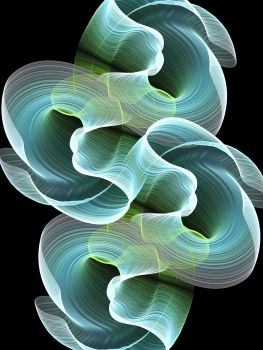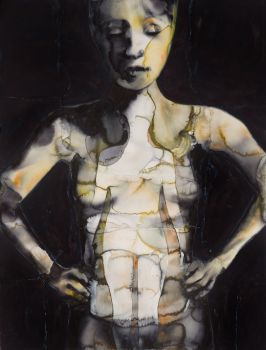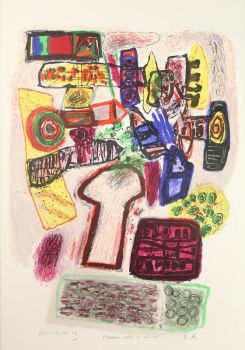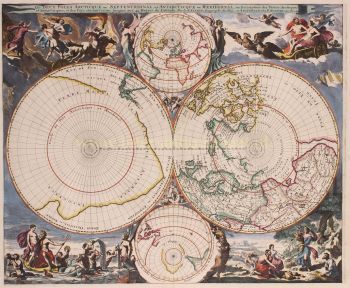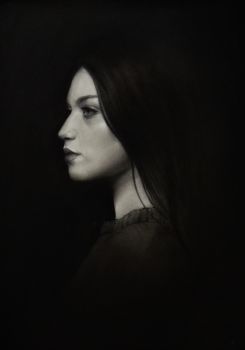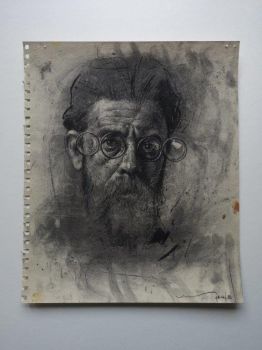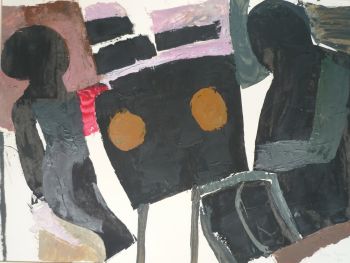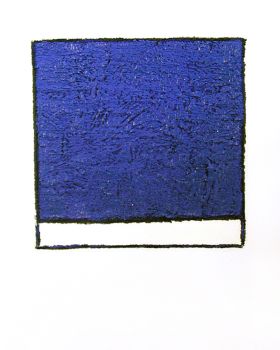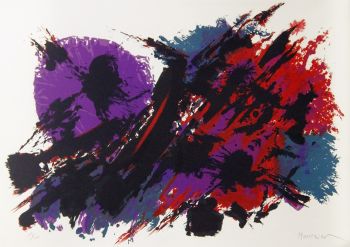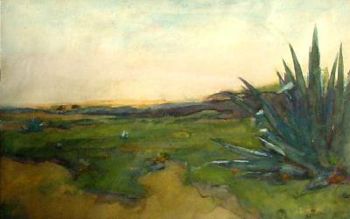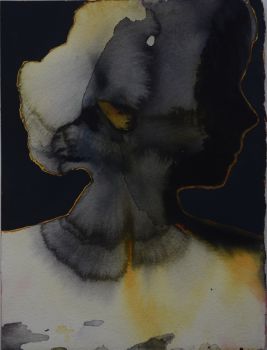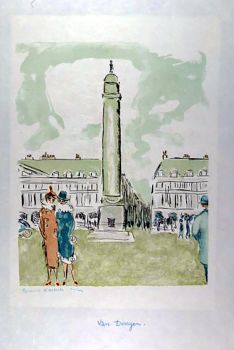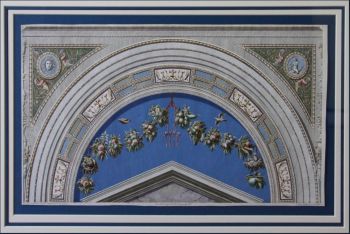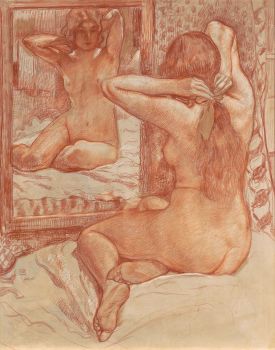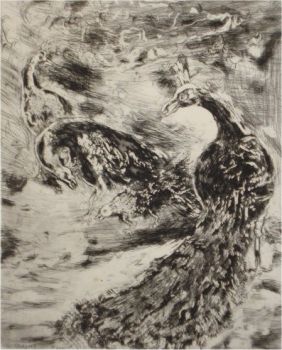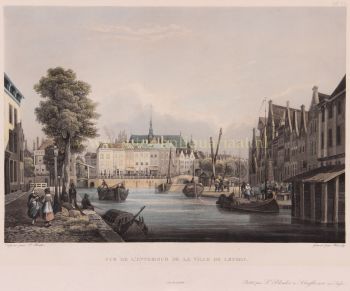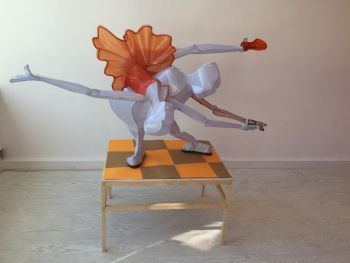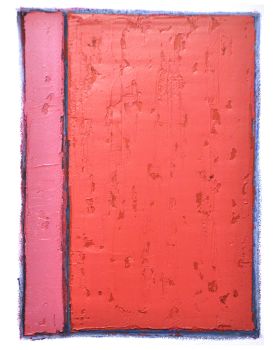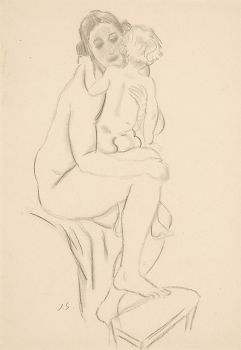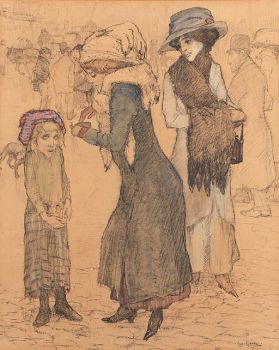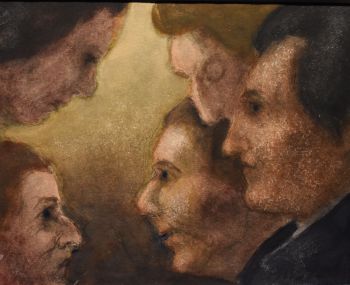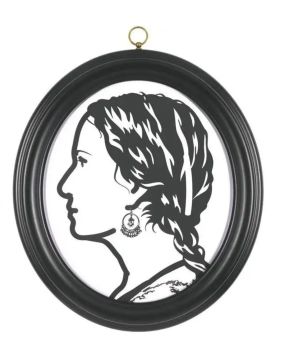Secreta secretorum Aristotelis; Medical secrets plus a largely imaginary Medieval European view of I 1528
Alessandro Achillini
PapelCouro
Atualmente indisponível via Gallerease
- Sobre arteSecreta secretorum Aristotelis.
Including:
ARISTOTLE [pseudo]. Maximi philosophi ... de signis aquarum: & tempestatum.
ARISTOTLE [pseudo]. Maximi philosophurum ... de mineralibus.
ALEXANDER OF APHRODISIAS. De intellectu.
AVERROES. De beatitudine anime.
ACHILLINI, Alexander. De universalibus.
ALEXANDER THE GREAT [pseudo]. De mirabilibus Indie.
(Colophon: Lyon, Antoine Blanchard, 23 March) 1528. Small 8vo (15 x 10.5 cm). With a title-page with a decorated woodcut border, woodcut printer's device on last page, 6 woodcut initials. Contemporary blind-tooled sheepskin(?) parchment over wooden boards, in a panel design, brass catch-plates and anchor-plates (straps and clasps lost).
Collection of seven treatises on medicine and philosophy, edited by Alessandro Achillini (1463-1512). Four of these are pseudo-Aristotelian works that had been well known since the 13th century or earlier. The Secreta secretorum is here present in the translation of Philip of Tripoli; the De signis aquarum, ventorum et tempestatum on weather signs, was translated in the 13th century by Bartholomew of Messina; the third pseudo-Aristotle is De mineralibus on gems; the fourth, Alexandri Macedonis ad Aristotelem de mirabilibus Indie, is a fictitious letter by Alexander the Great to his teacher Aristotle, describing the wonders of India and the East. Three other similar "Indian tractates" are known, all of them connected with the romance of Alexander the Great at various points in history.
The three remaining treatises in the present work consist of a work by Alexander of Aphrodisias on the intellect, another by Averroes on the beauty of the soul, and a work by Achillini himself on universals.
Very good copy, with very slight browning and a few marginal spots, lacking the final blank. Binding lacking straps and clasps, and with the (restored?) spine damaged.
Baudrier V, p. 104; Stillwell 578; USTC 155810 (8 copies); cf. Lach II, book 2, p. 94 ; Thorndike V, pp. 47-48. - Sobre artistaAlessandro Achillini (1463 ou 1461, Bolonha - 1512, Bolonha) foi um renomado professor de medicina e filosofia em Bolonha e Pádua. Ele viveu em Bolonha a maior parte de sua vida. Ele foi chamado de "o segundo Aristóteles". Ele era de natureza sincera e possuía um caráter dinâmico. Ele era um debatedor formidável. Suas obras filosóficas foram publicadas em um volume (fólio), em 1508, em Veneza, e reimpressas em 1545, 1551 e 1568 (edições ampliadas). Em 1506 teve que deixar Bolonha por motivos políticos, porque era partidário da família Bentivoglio. Ele partiu para Pádua, onde se tornou professor de filosofia de 1506 a 1508). Achillini foi também um notável anatomista, escreveu, entre outros, De humani corporis anatomia (A anatomia do corpo humano), Veneza, 1516-1524. Ele foi enterrado em 1512 em Bolonha na igreja de São Martinho.
Artwork details
Categoria
Assuntos]
Material e Técnica
Related artworks
Engelbert Kaempfer
LIVRO ENGELBERT KAEMPFER1651 - 1716
Preço em pedidoZebregs & Röell - Fine Art - Antiques
Tilmanus Nicolaus Maastricht
Missale Romanum com montagens de prata holandesa1788 - 1792
Preço em pedidoJacob J. Roosjen SRI
Yoko Ono
YOKO ONO: "ARISING" SIGNED BOOK PLUS SMALL ARTWORK 2010 - 2014
Preço em pedidoGallerease Selected
Tilmanus Nicolaus Maastricht
Missale Romanum com montagens de prata holandesa1788 - 1792
Preço em pedidoJacob J. Roosjen SRI
1 - 4 / 22Artista Desconhecido
An Indian part-gilt silver-clad ceremonial sceptre or mace with a tiger’s head1850 - 1900
Preço em pedidoZebregs & Röell - Fine Art - Antiques
 Com curadoria de
Com curadoria deDanny Bree
1 - 4 / 24- 1 - 4 / 24

